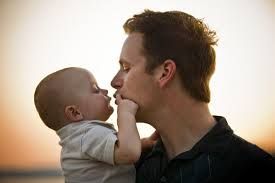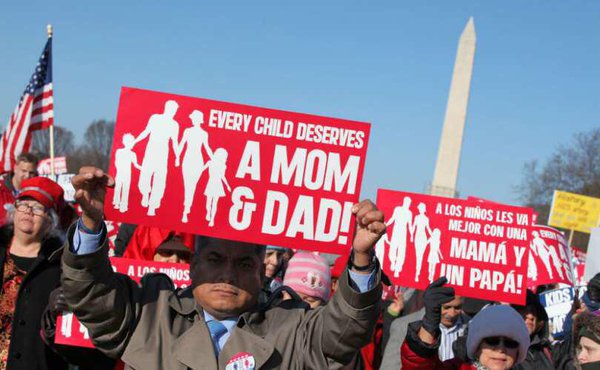The least understood – and often most destructive – type of child abuse is emotional. Its scars are not physical but invisible, with profound, far-reaching consequences (Andre 2005). Unfortunately, it’s much tougher to prove the existence of emotional abuse in the United States compared to the laws that exist to protect children in other countries. For example, in Sweden, it’s not only illegal to hit a child, but also to bully them (Hunt).

Emotional abuse, as defined by The Federal Child Abuse Prevention and Treatment Act (CAPTA) is a pattern of behavior that impairs a child’s emotional development or sense of self-worth. This may include constant criticism, hovering, threats, rejection, lying, bullying, menacing, accusing, blaming, taunting, intimidating, as well as withholding love, support, or guidance, or generally lacking empathy.
Parental alienation does not materialize without the presence of emotional abuse. While alienating parents may not leave visible signs of their abuse, what they are doing is clearly abusive. When a custodial parent isolates a child from another parent through programming techniques, it is the alienator’s way of controlling a child’s beliefs through rejection and fear.
Parents who try to alienate their child from his or her other parent convey a three-part message to the child: (1) I am the only parent who loves you and you need me to feel good about yourself, (2) The other parent is dangerous and unavailable, (3) Pursuing a relationship with that parent jeopardizes your relationship with me (Baker).
Children do not naturally lose interest in and become distant from their nonresidential parent simply by virtue of the absence of that parent, and healthy and established parental relationships do not erode naturally of their own accord. They must be attacked (Bone and Walsh).
Emotionally abused children, particularly those exposed to parental alienation tactics by a custodial parent, cannot meaningfully protect themselves against such hostility. They live in a state of chronic upset and threat of reprisal, and it wounds their psyches so deeply that such abuse may wreak psychological havoc greater than that caused by physical abuse, according to clinical research.

Simply put, an alienating parent operates by the adage, “My way, or the highway.” One must realize that the PAS process operates in a “fear based” environment. It is the installation of fear by the alienating parent to the minor children that is the fuel by which this pattern is driven; this fear taps into the most basic emotion inherent in human nature—the fear of abandonment. When the child does dare to defy the alienating parent, they quickly learn that there is a serious price to pay. Consequently, children who live such lives develop an acute sense of vigilance over displeasing the alienating parent (Bone and Walsh).
Parental alienation and parental alienation syndrome differ in important respects. Parental Alienation Syndrome focuses on the child’s behavior: refuses to visit, expresses unjustifiable hatred towards the target parent, displays no fear of the court, harbors irrational beliefs shared by the alienating parent, and cannot see any good in the targeted parent (Darnall).
Parental alienation, on the other hand, focuses not on the child's behavior, but on the parent's behavior: demonizing the other parent, attempting to limit or block access using the argument that visitation is unsettling to the child, forbidding discussion about the other parent, not allowing photos of the other parent in the home, belittling the target parent’s extended family, and bullying the child into conformity.
The alienating parents are oblivious to the psychologically and emotionally detrimental effects to the child; they simply don’t care. They believe they are more biologically valuable to the children than you are, and will campaign against you until you evaporate from the face of the earth, or until the children are fully aligned with them, in which case, the children have been completely programmed, are now suffering from PAS, and take over the denigration crusade of their own volition.
Losing a loved one is a traumatic experience at any age, and despite how resilient children may be, this type of trauma seriously disrupts their social and emotional development. Because the loss is not a permanent one, as in the case of a tragic death, the trauma a child suffers as a result of exposure to PAS is never-ending. Every instance in which the target parent attempts to make contact – through phone calls, letters, cards, packages – serves as a reminder that the parent considered dead to them is very much alive. Young children, particularly, are in the midst of developing the cognitive, reasoning, and socialization skills necessary to comprehend and respond to trauma, whether it’s an isolated event like a bullying situation, or an ongoing situation such as child abuse, and this type of persistent exposure to parental alienation can impair their ability to focus, organize and process information, and solve problems.
This is an issue I’m incredibly impassioned about because my family has been ravaged by parental alienation. I’ve written endlessly about the increasingly volatile situation in which my two previously well-behaved, loving daughters embraced their father and stepmother’s campaign of denigration and began acting out in hostile ways toward every member of my household.
Of course, it didn’t happen overnight. My girls were legally abducted (I agreed they could move to Indiana with their dad and try it out for one school year), held hostage 279-miles away from me, and isolated for 656 days; my only form of communication during that time was letters (which they never received) and telephone calls. After I filed the necessary paperwork to enforce our valid court order (and contempt for my ex husband’s systematic interference with my parenting time), the judge instructed my ex husband to abide by the current order, which meant the girls spent every other weekend in Ohio with me, pending the outcome of the trial.
I was stunned to witness my ex husband’s alienation tactics escalate at such an intense pace after our appearance in court, at which time we reached a parenting agreement that, I believed, was beneficial to the girls, as they wanted to remain living with their dad. I knew they didn’t want to participate with in-camera interviews and psychological evaluations; my ex husband’s worst fear, I clearly realize now. The long distance schedule was implemented upon our agreement, which meant the girls began coming home for several days once a month, on average, instead of every other weekend. The escalation happened in only a matter of months, and my girls are now suffering severe parental alienation syndrome. I am discovering, too, that the process is almost impossible to reverse.
That is why preventing and understanding parental alienation is so important. It’s much easier to combat PAS when you exercise frequent parenting time with your children. As J. Michael Bone points out, “When there are substantial periods in which they do not see the other parent, the children are more likely to be poisoned by the process. Another variable that predicts success is the child’s age. Younger children generally are more vulnerable than older ones.”
The saddest realization, for me, is that my ex husband’s horrendous behavior has violated one of the most sacred duties of parenthood, which is to foster and facilitate love. Not only has he robbed our children of a meaningful relationship with me, he has given them a distorted definition of love. They are learning, from the first man they loved in their life, to associate love with pain, and sadism with intimacy - a lesson that, I’m afraid, will leave them emotionally bankrupt later in life.
As resilient as children may be, do they ever completely overcome the mutilation of their hearts and souls?
The long-term effects of parental alienation are questionable, but research shows that when exposed to distressing events, even children as young as 18 months can develop serious psychological problems later in childhood and in adulthood. As they grow, these children take with them the effects of traumatic events, and are more likely to experience problems with substance abuse, depression, and stress management as a result. Make no mistake - losing a parent, whether through death, divorce or unnatural isolation, is traumatic for a child.
Children deserve to live in an environment unencumbered by fear and pain. They should never be made to feel as if they are being disloyal to one parent simply because they exercise their fundamental right to freely express love and affection for the other, and they certainly don’t deserve to be betrayed by the very people they love and trust.
All, too, will bear in mind this sacred principle, that children are not our property, and they are not ours to control any more that we were our parents' property or theirs to control (Richard Bach).
Cruelty and oppression is everybody's business to interfere when they see it.
Parental Alienation Awareness Day is April 25, 2011. Parental Alienation Awareness is put forth to help raise awareness about the growth in the problem of targeting children and their relationship in healthy and loving parent/child bond. With awareness comes education and understanding, and the power to stop the abuse of innocent children caught in the crossfire of people they love.
If you’ve been affected by Parental Alienation or know someone who has, please consider joining the Bubbles of Love Campaign for 10 minutes on April 25, 2011 at Noon your time. Each bubble represents love, how love takes us all higher, and how, like bubbles, we should not contain love.
Source: http://open.salon.com/blog/carrie_ella/2011/04/21/parental_alienation_is_emotional_child_abuse
Resources:
The California Psychologist
The Natural Child Project
Child Welfare Information Gateway
Douglas Darnall
Amy J.L. Baker
J Michael Bone
StopBullying
The California Psychologist
The Natural Child Project
Child Welfare Information Gateway
Douglas Darnall
Amy J.L. Baker
J Michael Bone
StopBullying
Technorati Tags: Child Abuse,Emotional Abuse of Children,Psychological Abuse of Children,Parental Alienation,Parental Alienation Syndrome,Hostile Aggressive Parenting,Punishment,Bubbles of Love,PAS Awareness Day



























 Do you support a presumption of equal parental fitness, regardless of gender, being enshrined in law in accordance with the 14th Amendment?
Do you support a presumption of equal parental fitness, regardless of gender, being enshrined in law in accordance with the 14th Amendment?











